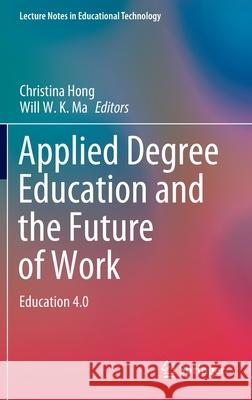Applied Degree Education and the Future of Work: Education 4.0 » książka
topmenu
Applied Degree Education and the Future of Work: Education 4.0
ISBN-13: 9789811531415 / Angielski / Twarda / 2020 / 363 str.
Applied Degree Education and the Future of Work: Education 4.0
ISBN-13: 9789811531415 / Angielski / Twarda / 2020 / 363 str.
cena 402,53
(netto: 383,36 VAT: 5%)
Najniższa cena z 30 dni: 385,52
(netto: 383,36 VAT: 5%)
Najniższa cena z 30 dni: 385,52
Termin realizacji zamówienia:
ok. 16-18 dni roboczych.
ok. 16-18 dni roboczych.
Darmowa dostawa!
Kategorie:
Kategorie BISAC:
Wydawca:
Springer
Seria wydawnicza:
Język:
Angielski
ISBN-13:
9789811531415
Rok wydania:
2020
Wydanie:
2020
Numer serii:
000468790
Ilość stron:
363
Waga:
0.70 kg
Wymiary:
23.39 x 15.6 x 2.24
Oprawa:
Twarda
Wolumenów:
01
Dodatkowe informacje:
Wydanie ilustrowane











